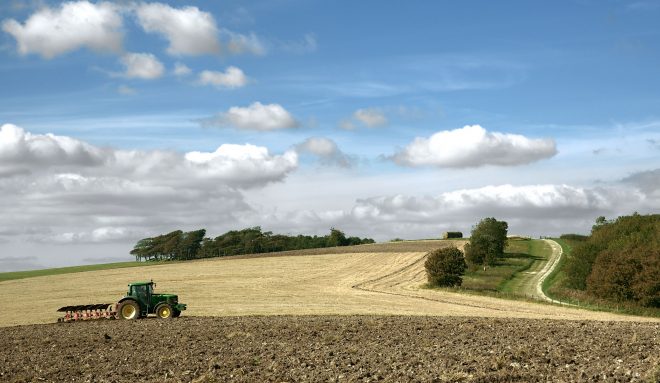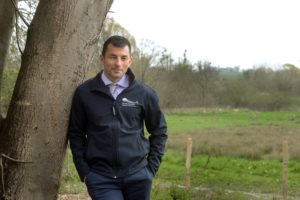Next round of innovative funding scheme for farmers in South Downs
November 8, 2022

Farmers and land managers in the South Downs National Park are being encouraged to apply for funding that could significantly improve business resilience and help the environment.
The South Downs National Park Authority is putting the call out for applications as new funding becomes available for farmers to implement nature recovery, climate action and sustainability, as well as initiatives that improve landscape, heritage and access.
It comes after a range of schemes in the South Downs have already benefitted from Defra’s Farming In Protected Landscapes (FiPL) programme, which is helping to support farmers in England’s 44 protected landscapes. Over the past 16 months, a total of 71 projects across the National Park have taken a share of £950,000.
The National Park’s farming team is delivering the programme locally and is now keen for new applications.
Farmers and land managers can apply for funding to carry out projects that:
- Promote enterprise and farm diversification
- Support nature recovery
- Mitigate the impacts of climate change
- Provide opportunities for people to discover, enjoy and understand landscape and cultural heritage
- Support nature-friendly, sustainable farm businesses
 Nigel James, Countryside and Policy Manager and who leads the farming team at the National Park, said: “Around 70 per cent of the South Downs National Park is farmland, so I can’t stress enough how important farmers are to the stewardship of this incredible landscape.
Nigel James, Countryside and Policy Manager and who leads the farming team at the National Park, said: “Around 70 per cent of the South Downs National Park is farmland, so I can’t stress enough how important farmers are to the stewardship of this incredible landscape.
“We’re really pleased with the positive impact since the scheme started in July 2021 and many farmers are now reaping the rewards, whether they’re a small family-run establishment or a large rural estate. FiPL funding is available through to March 2024 and we’re looking forward to hearing from more farmers and land managers. We’d be particularly interested to hear about potential projects around enterprise and diversification, as well as those delivering nature-friendly farming and climate action.”
Projects already funded have included installing over 300 wild bird feeders at farms across Sussex and a special 24-hour milk vending machine in a Hampshire village.
Farmer Madeleine Crawley, of Courthill Farm, near Slindon, West Sussex, was full of praise for the programme. She said: “We consider ourselves very fortunate to have received funding through the FiPL grant.
“The grant has helped us to futureproof the farm against the reducing Basic Payment Scheme income, while continuing to farm to high environmental standards. We’ve been able to start an additional farm-based enterprise which, without the grant, we would not have been able to achieve. The FiPL grant has offered us the opportunity to engage with more people, both by welcoming them on to the farm and providing additional education resources.
“We’re passionate about our farming system, our surrounding landscape and the flora and fauna within it and so are very thankful to have this chance to share it with the wider community.”
A Local Assessment Panel, predominantly made up of farmers, decides which projects should be supported, using guidance from Defra and relevance to the National Park’s Partnership Management Plan.
FiPL has a rolling application window with new projects being assessed up to December 2023.
For more information visit www.southdowns.gov.uk/FarmingInProtectedLandscapes
Applications will need to be developed with the National Park’s farming team before being submitted and application forms can be requested by emailing farming@southdowns.gov.uk
In its first year the FiPL programme has had a big impact in the South Downs National Park, for example:
- Over 3,600 metres of new hedgerows have been created.
- Almost 10 hectares of woodland is being enhanced to make it more attractive to wildlife.
- A total of 38 projects are helping to store carbon.
- Four ponds have been restored and two new ponds have been created.
- Some 228 metres of flint walling has been restored.
- Six projects will improve soil quality, while a further six will help to reduce flood risk.
- Management will be improved at 2,300 hectares of land at Sites of Special Scientific Interest (SSSI), while a further 600 hectares of land outside SSSIs will be enhanced to support biodiversity.
- Over 4,300 hectares of land is now being managed with regenerative farming techniques, which focus on rejuvenating depleted topsoil to improve its biodiversity and carbon-capturing powers, while also producing high-quality food.
- Over 40 projects will help the general public have a better understanding of farming and landscape.
